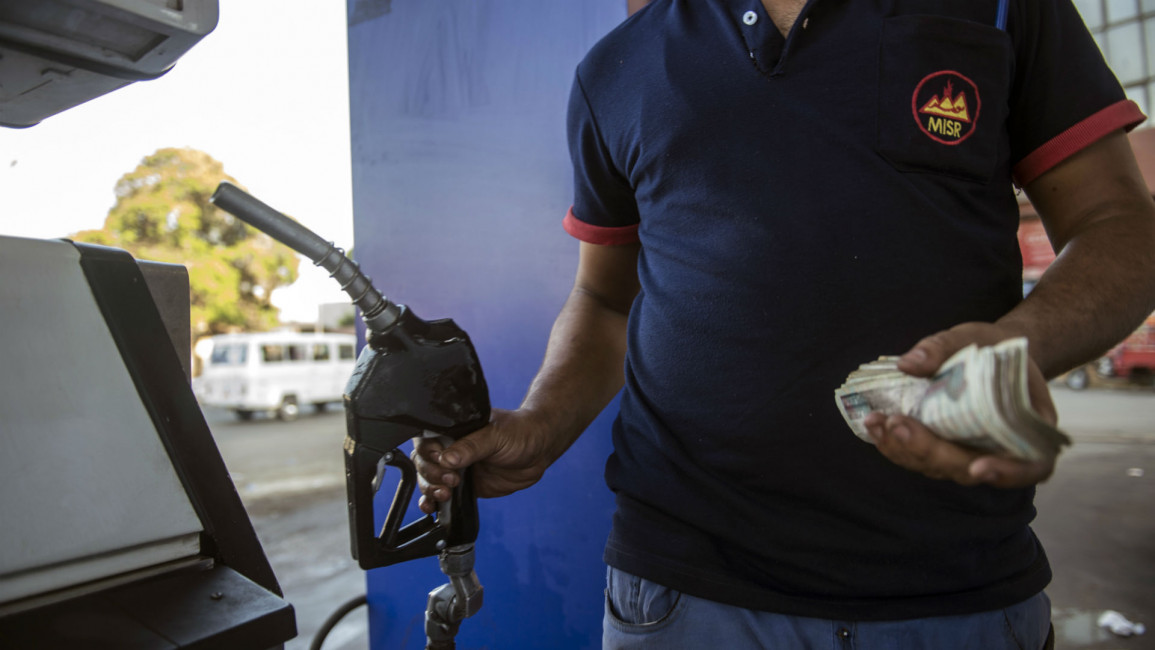Sharp fuel price hike fans fears of inflation, increased food costs in Egypt
Hisham Gaber had been preparing his wedding for months, but started to have second thoughts as inflation in Egypt rocketed due to government austerity measures, including sharp increases in fuel prices.
"Marriage and handling the additional burdens in these conditions have become an unsound decision," said the 28-year-old engineer.
The government on Thursday announced an increase in fuel prices of up to 55 percent, the second since November when it also floated the currency in an IMF-backed reform programme, which fuelled inflation.
Analysts believe the fuel price rises will further increase inflation although it was announced to have decreased in May to an annual rate of 30.9 percent, from 32.9 percent the previous month.
"Prices are still rising but not as sharply as before," said Amr Adly, an analyst with the Carnegie Middle East Center.
Radwa al-Sweify, an analyst with Pharos Holding for Financial Investments, believes that inflation will spike.
"Inflation over the next two months may rise to 34-36 percent but the rate of inflation in the last two months of this year will be less than the same period last year when the pound was floated," she said.
The pound has depreciated sharply from 8.8 per dollar to 18 - following its flotation, which came after the International Monetary Fund agreed a $12 billion loan disbursed over three years.
The move, in a country that relies on imports, drove inflation to a record high in April.
"The exchange rate is key to price fluctuations in a country where food and medicine make up more than 40 percent of imports," said Adly.
'Prices have tripled'
The government has announced a raft of measures to protect low-income Egyptians, saying it boosted social spending to 75 billion Egyptian pounds ($4.1 billion).
About 28 percent of Egypt's 90 million people are poor, according to official figures from 2015.
But government social spending will cover only between 40 percent and 50 percent of the recent price hikes, said Sweify.
"The government doubled social spending, but prices have tripled," she said.
With the latest fuel increases that affect transport costs, the prices of vegetables and fruits may rise by between 20 and 25 percent, said Omar al-Shenety, the founder of Multiples Group, an investment firm.
Prime Minister Sharif Ismail said the fuel subsidies were straining government financing.
The projection for next year at the same levels "is 150 billion pounds. This is a big number that neither the oil sector nor the budget can handle," he said at a press conference.
But despite widespread consternation among Egyptians, it is unlikely that the soaring cost of living will lead to unrest, Shenety said.
"The government's conviction that there will not be a backlash by people allowed it to make these reforms forcibly," he said.
Economic grievances had fuelled the 2011 uprising that overthrew longtime president Hosni Mubarak, ushering in years of unrest that decimated tourism and investment.
Many Egyptians now are weary of further unrest, while the government shows little tolerance for dissent, having jailed thousands of Islamists and secular dissidents over the past few years.
President Abdel Fattah al-Sisi, the former army chief who toppled his Islamist predecessor Mohammad Morsi in 2013, has said the country has no choice but to undertake the tough economic reforms his predecessors had put off, fearing unrest.



